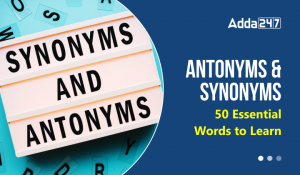
Direction (1-10) Read the following passage carefully and answer the questions given below it. Certain words have been printed in bold to help you locate them while answering some questions.
The return of India to the global rice market has so far managed to cap corruption an unnerving price rally for the grain triggered by flooding in Thailand the world’s largest rice exporter. Rice is a staple for 3bn people in Asia, the Middle East and west Africa and its price is closely watched because of the impact on inflation and the potential for social unrest. Thailand usually accounts for nearly a third of global rice exports, but the country’s worst floods in 50 years have damaged up to a quarter of its main crop, denting the exportable surplus. The shortage pushed up benchmark rice prices to a three-year high of $ 650 a tonne triggering fears of a spike in food inflation in Asia. Since then New Delhi has lifted a four-year-old export ban on sales of non-basmati rice, filling the gap left by Bangkok, and stopping what rice traders and agricultural officials said would almost certainly have been a wave of panic buying. “The supply response by India will compensate the loss of Thai exports,” says, chief executive of trading house in Singapore. The cost of benchmark white Thai rice has fallen back to $ 630 a tonne after the comeback of India to the global rice market. Vietnamese and Indian rice varieties of similar or slightly lower quality are trading $ 100- $ 130 a tonne below that level. Vietnam, traditionally the world’s second-largest exporter, should also help to close the gap left by Bangkok as the country harvests a relatively large crop. Even Thailand itself could help next year. The floods have damaged the country’s main crop, but farmers are likely to compensate by boosting planting for the secondary crop in December and January, bringing extra supplies when paddy fields are harvested in March and April.
Q1. What does the word ‘Cap’ mean in context to the passage?
(a) It means that the situations were improving day by day.
(b) It means that the earlier situation was bad but comparatively the situation has improved now.
(c) It means that the past was bad and the situation after that was even worse.
(d) The word indicates that the current scenario is the best.
(e) None of these
Q2. What sort of problem is faced by ‘Thailand’ the world’s largest rice exporter?
(a) The main problem currently in Thailand is the scarcity of grains.
(b) The current scenario highlights the major problem of export and import in Thailand.
(c) Both 1 and 2
(d) The grain produced in the land of Thailand has been vastly affected by the floods.
(e) Not indicated in the passage.
Q3. Why has New Delhi lifted a ban on sales of basmati rice?
(a) New Delhi has lifted the ban so as to fill the gap left by the capital of Thailand .
(b) The ban was lifted in order to improved the supply of basmati rice in different countries.
(c) The ban on sales of non basmati rice has been removed to fill the gap left by Thailand
(d) All 1, 2 and 3
(e) None of these
Q4. Which of the following is the second -largest exporter of rice?
(a) Indonesia
(b) Vietnam
(c) Bangkok
(d) Thailand
(e) New Delhi
Q5. What does the statement The return of India to the global rice market’ mean in context to the passage?
(a) The statement means that India was earlier the second largest producer of rice.
(b) The statement means that India used to export rice to Bangkok.
(c) Both 1 and 2.
(d) The statement means that earlier India was the largest producer of basmati rice.
(e) None of these
Directions 6-8: Choose the word most nearly SIMILAR in meaning to the word printed in bold, as used in the passage.
Q6. Denting
(a) Scratched
(b) Impressing
(c) Depressing
(d) Engraving
(e) Printing
Q7. Triggering
(a) Blocking
(b)Activating
(c) Stopping
(d) Set off
(e) Checking
Q8. Filling
(a) Re-filling
(b) Snatching
(c) Synchronzing
(d) Covering
(e) Filtering
Directions 9-10: Choose the word most nearly OPPOSITE in meaning to the word printed in bold, as used in the passage.
Q9. Close
(a) Open
(b) Widen
(c) Large
(d) Deeply
(e) Toshut
Q10. Damaged
(a) Improve
(b) Improvement
(c) Broken
(d) Fragile
(e) Improved
Directions (11-15):ln each question below a sentence with four words printed in bold type is given. One of these four words printed in bold may be either wrongly spelt or inappropriate in context of the sentence. Find out the word which is wrongly spelt or inappropriate if any. The number of that word is your answer. If all the words printed in bold are correctly spelt & also appropriate in the context of the sentence, mark (e) “All correct” as your answer.
Q11.
(a) A rotten
(b) ship-infects
(c) the whole
(d) flock.
(e) All correct.
Q12.
(a) The
(b) higher you go
(c) the cooler
(d) it got.
(e) All correct.
Q13.
(a) They
(b) were walking
(c) on the meadow
(d) in a gigzag way.
(e) All correct.
Q14.
(a) When
(b) your uncle einquired
(c) about your marks
(d) you lied
(e) to him. All correct.
Q15.
(a) The posts
(b) were advertised
(c) by the planning comission
(d) in all the local dailies.
(e) All correct.
Solutions
S1. Ans. (c)
S2. Ans. (d)
S3. Ans. (a)
S4. Ans. (c)
S5. Ans. (e)
S6. Ans. (e)
S7. Ans. (b)
S8. Ans. (d)
S9. Ans. (b)
S10. Ans. (e)
S11. Ans. (b)
Sol. Change ‘ship’ into ‘sheep’
S12. Ans. (d)
Sol. Change ‘got’ into ‘get’
S13. Ans. (d)
Sol. Change ‘agigzag’ into ‘zigzag’
S14. Ans. (b)
Sol. Change ‘einquired’ into ‘enquired’
S15. Ans. (c)
Sol. Change ‘comission’ into ‘commission’
Practice with Online Test Series for SBI and IBPS Prelims 2021:
Click Here to Register for Bank Exams 2020 Preparation Material









 English Language Notes for Competitive E...
English Language Notes for Competitive E...

